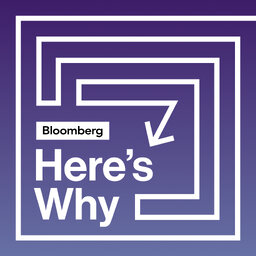Human Rights in El Salvador and Race in Hiring
Bloomberg Opinion's Eduardo Porter discusses El Salvador's controversial iron fist policy that raises complicated questions about democracy. Columnist Lisa Jarvis says, if you never got COVID, thank you genes. She joins to explain. Kathryn Edwards says assertions of racial bias against white men are not supported by unemployment data. And Faye Flam joins to talk about rising temperatures. Hosted by Amy Morris.
In 1 playlist(s)
Bloomberg Opinion
Deeper conversations on the week's most significant developments. Tune in and join in!Social links
Follow podcast
Recent clips

Introducing 'Here's Why' - Complex News Stories Explained
00:30

Airline Mergers and Restaurant Loyalty
35:20

Fossil Fuel Use and Drug Development
35:28
 Bloomberg Opinion
Bloomberg Opinion